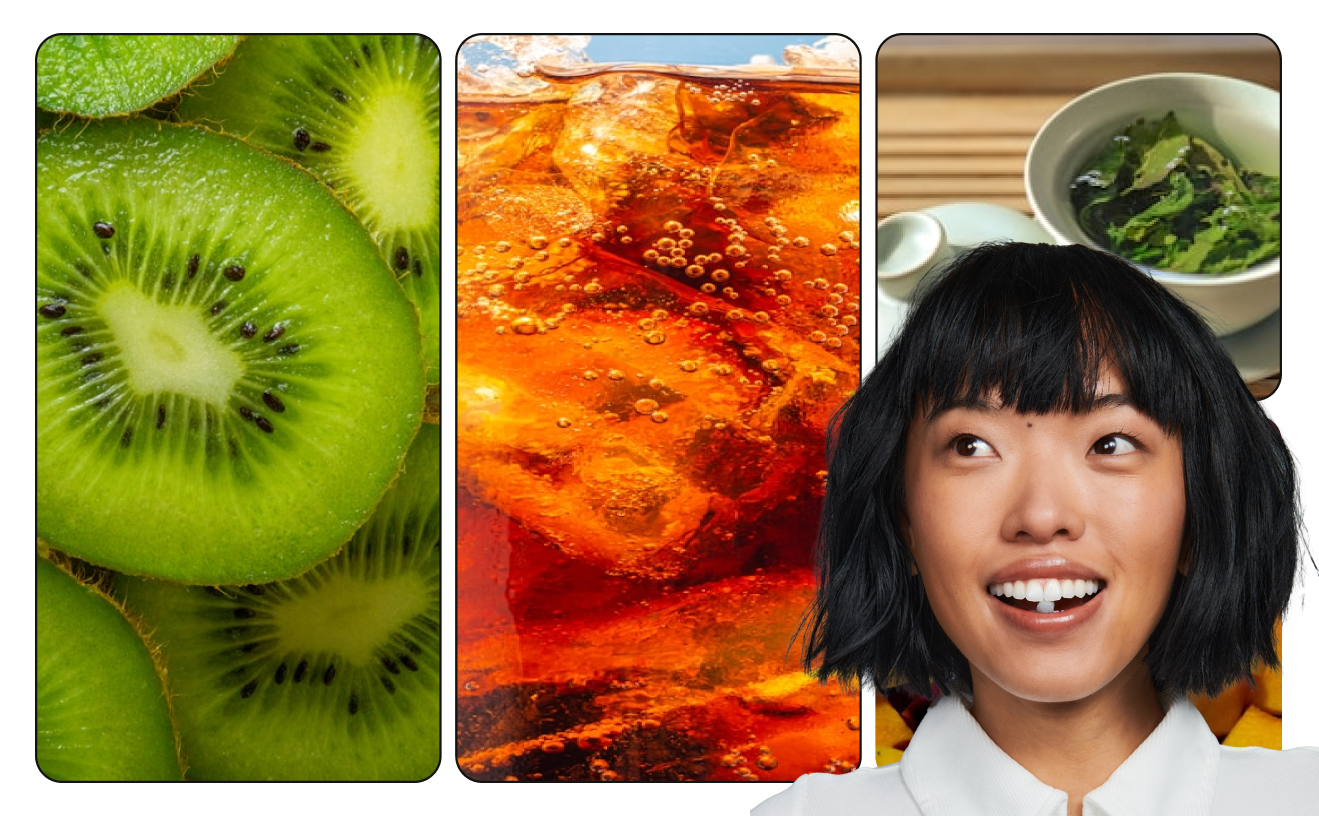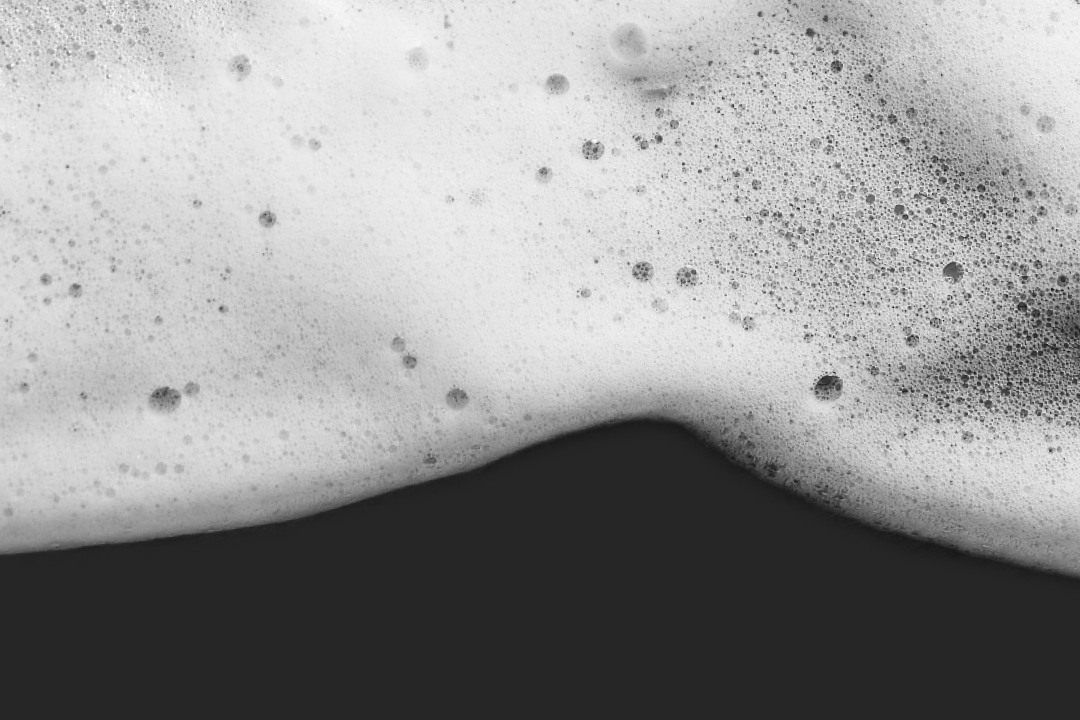5 Benefits of Mouthwash and Why You Should Use It
We all know brushing your teeth is vital in oral health upkeep and to prevent cavities, but what role does mouthwash play?
In addition to that fresh feeling we all know and love, mouthwash actually provides several benefits that you surely don’t want to miss out on.
Read on to learn how to use mouthwash, its benefits, and how Bite can help clean up your oral hygiene routine.
Should You Use Mouthwash Every Time You Brush Your Teeth?
Using mouthwash every time you brush your teeth helps ensure you are getting the full benefits. Brushing your teeth first provides a deep clean, and mouthwash works as a final sweep for optimal freshness. Think of using mouthwash as a second line of defense in fighting and preventing bacteria and cavities.
If you have a busier lifestyle and not a lot of time to freshen up your breath when needed, Bite’s mouthwash bits are great for taking on the go.
With our travel tin that fits in your pocket and convenient, perfectly portioned bits, you never have to worry about being in a pinch. Plus, while refreshing your breath, you are helping save our earth.
We can all use mouthwash for a few different reasons, like freshening up after a garlicky meal or preventing cavities. Regardless of your reasoning, mouthwash is a great way to strengthen your oral hygiene routine.
How Often Should Mouthwash Be Used?
It is recommended that you brush your teeth at least twice a day. The number of times you brush your teeth per day may depend on what your dentist recommends and whether you are receiving orthodontic treatment like braces.
If you want to freshen up your breath, using mouthwash is a great way to eliminate the bacteria in your mouth that is causing any bothersome odor.
Before using mouthwash, brushing your teeth and tongue helps clean up your mouth for a freshness boost, especially after eating stronger-smelling foods like onions or garlic. You can use mouthwash twice a day when you brush your teeth.
Is It Possible To Overuse Mouthwash?
Can mouthwash be harmful if it is so beneficial to your oral health?
The answer is yes — the overuse of mouthwash can lead to issues like dry mouth, mouth sores, damaged taste sensitivity, and swollen or irritated gums. Using mouthwash no more than twice a day can help you avoid these problems.
Another way to avoid these issues is to use a mouthwash that is more gentle on your mouth and does not contain harsh ingredients like alcohol and artificial coloring.
At Bite, we know that having a clean oral hygiene routine is crucial to your overall health, which is why we have created a line of clean, all-natural oral care products like our mouthwash bits.
Our mouthwash bits are made with nontoxic ingredients in sustainable packaging so that you can feel good about your oral hygiene routine and contributions that help keep our earth healthy.
What Are the Benefits of Mouthwash?
Mouthwash can help strengthen your oral hygiene routine beyond brushing and flossing alone. Knowing the benefits of mouthwash can help you feel more confident in taking care of your oral health.
1. Helps Freshen Your Breath
Mouthwash is a powerful tool for keeping your breath fresh because it kills bacteria that causes odor in your mouth. Most mouthwashes are made with a mint flavor to keep your mouth feeling clean and fresh.
Unfortunately, many types of mouthwash contain alcohol as the main agent in killing unwanted bacteria in your mouth. However, alcohol can be harsh on your mouth.
Alcohol in mouthwash effectively kills bacteria, but it targets all bacteria in your mouth, meaning that it kills both the bad and good bacteria. This can lead to an imbalance of beneficial bacteria in your mouth.
At Bite, we use xylitol as a tool to repel odor-causing bacteria to keep your mouth balanced and protected. Xylitol is also a natural sweetener often found in gum and breath mints due to its multiple beneficial properties.
2. Helps Ward Off Cavities
Cavities are caused by tooth decay that leads to holes in your teeth. Because cavities are painful and harmful to your oral health, cavity prevention is crucial.
The bacteria-killing properties of mouthwash can help prevent the tooth decay that causes cavities.
3. Helps Prevent Plaque
Plaque is a sticky film that forms on your teeth primarily when you eat sugary or starchy foods. Without brushing, flossing, and mouthwash, plaque can harden and turn into tartar.
Tartar can cause various oral health issues like gingivitis and tooth loss, so preventing and fighting plaque build-up is essential.
Mouthwash works to fight and prevent plaque because it helps eliminate leftover bacteria and food particles that brushing alone cannot get to. Keeping mouthwash in your oral hygiene routine is crucial to preventing gingivitis and tooth loss.
4. Rinses Away Food Particles
As mentioned before, mouthwash is a great tool for washing away leftover food particles that are missed after brushing alone. Using mouthwash after each brushing will help you get rid of those pesky food particles and the odor that comes with them.
5. Can Help Relieve Canker Sores
Canker sores are sores inside the mouth that can be caused by stress, spicy or acidic foods, and minor injuries in the mouth. Using mouthwash properly may help soothe and prevent canker sores.
Think of mouthwash as a wound wash for your mouth. Wound washes effectively clean out minor cuts and heal piercings by washing out excess bacteria, and mouthwash works the same way but in your mouth.
How Much Mouthwash Should You Use?
It is important to know how much mouthwash to use so that you can take full advantage of its powerful benefits for your oral health. Most mouthwashes come in liquid form and have directions on how much to use.
At Bite, we make mouthwash bits that you chew up, sip some water, and swish away. Using the right amount of mouthwash is easy with Bite’s individual tablets, and you no longer have to worry about the negative impact your mouthwash might be having on the planet.
What Kind of Mouthwash Is Best?
Because we all have unique needs, finding mouthwash that meets those needs is important. At Bite, we have a clean, natural, and effective mouthwash that is made with gentle yet effective ingredients.
Many companies use harsh ingredients like alcohol, fluoride, and artificial dyes encased in a plastic bottle that will end up either in a landfill or in an ocean. We at Bite know that your health and the earth’s health go hand in hand, so we are committed to clean, safe, and sustainable formulas.
We have now added nHAP to our mouthwash bits, short for nano-hydroxyapatite. NHAP is a non-toxic fluoride alternative that helps strengthen and remineralize your enamel and helps fight sensitivity.
Fluoride is known as the standard for toothpaste and mouthwash, but nHAP is a comparable alternative to fluoride. NHAP is great for people who have a fluoride sensitivity.
Not only is nHAP safer than fluoride, but it also penetrates deeper into your enamel than fluoride does, meaning that its enamel restoring properties work from the inside out.
If you suspect you might have a fluoride allergy or sensitivity, you should consult your dentist to confirm this so you can determine which products you may or may not be able to use comfortably.
At Bite, we use nothing but clean, safe ingredients like nHAP to give you both a healthy mouth, peace of mind, and the satisfaction of knowing that you are helping heal our earth.
The Bottom Line
Using mouthwash as part of your oral hygiene is an incredibly important and effective defense against tooth decay.
Finding a mouthwash for oral hygiene can be difficult when tons of products contain harsh ingredients that are harmful to your health and the earth.
With Bite, you can be confident that you are putting good ingredients in and putting out good for your health and the environment with every mouthwash bit.
Sources:
Pros and Cons of Mouthwash | Milltown Dental
Cavities: Tooth Decay, Toothache, Causes, Prevention & Treatment | Cleveland Clinic
Is Nano-Hydroxyapatite Toothpaste Safe and Effective or Just ... | Matthew Krieger DMD
Burning mouth syndrome - Symptoms and causes | Mayo Clinic
Dental Plaque: What Is It, Causes, How to Remove, Prevent & Treat | Cleveland Clinic
Canker Sores: Causes, Symptoms, Treatment & Prevention | Cleveland Clinic


